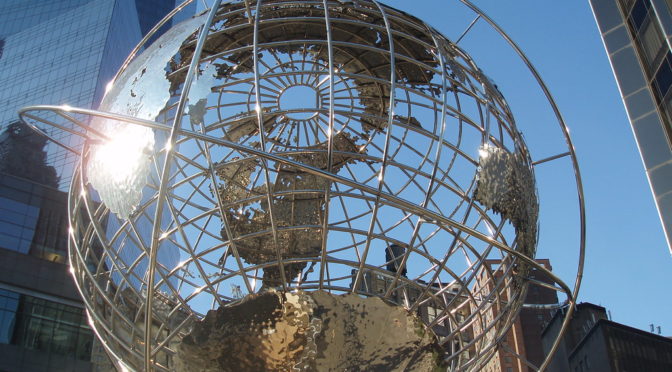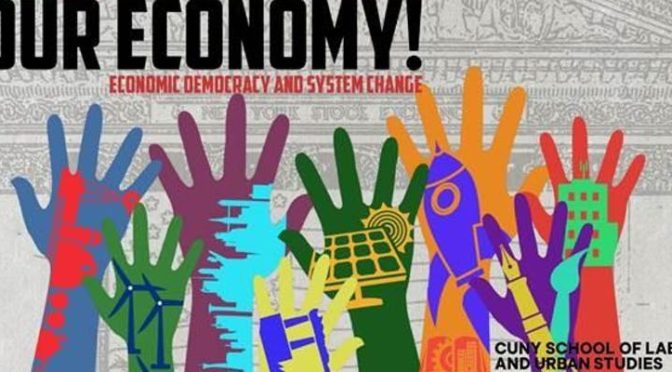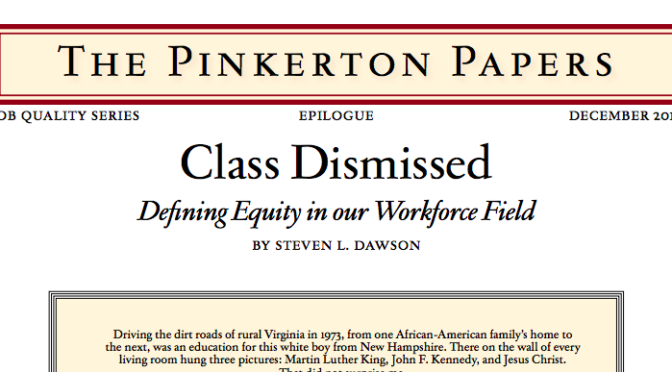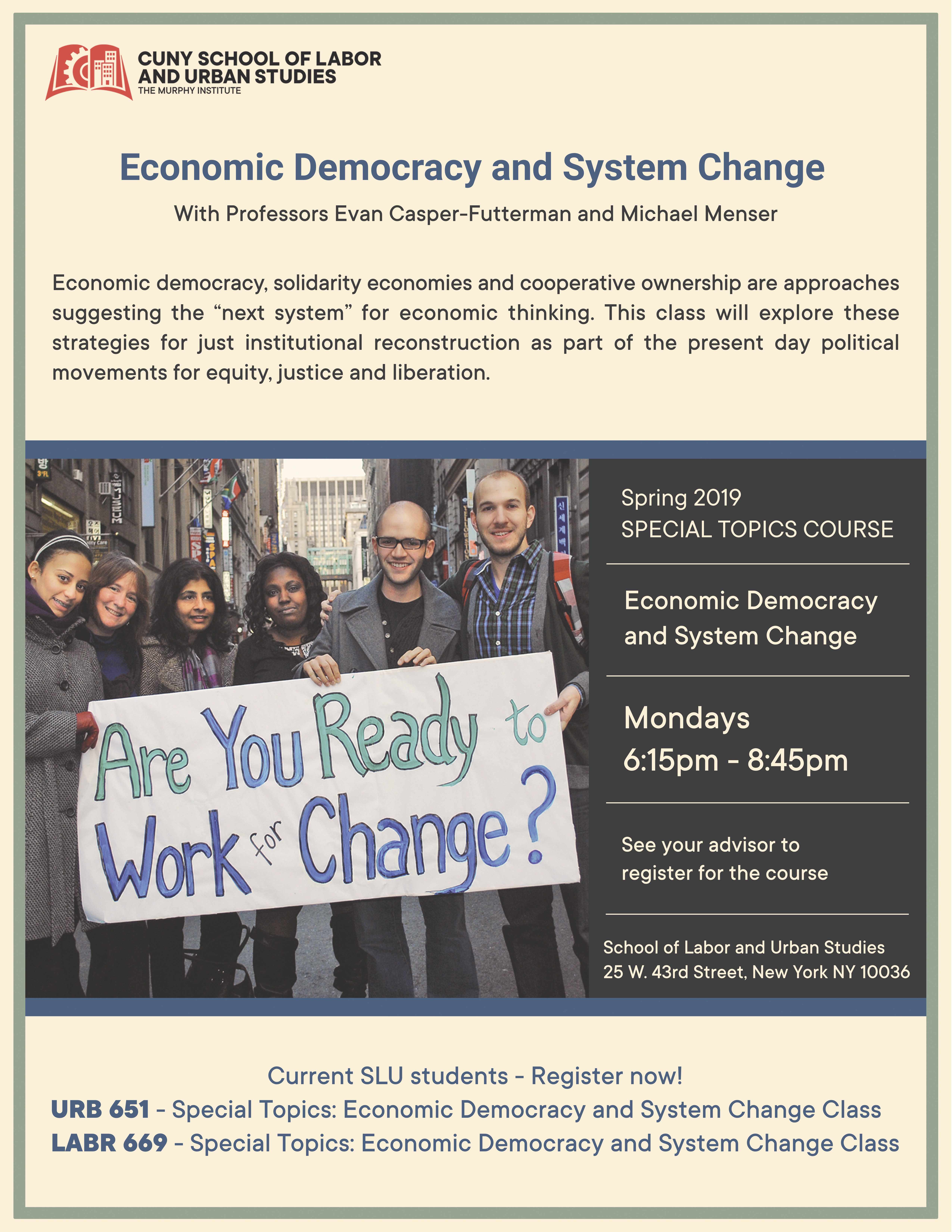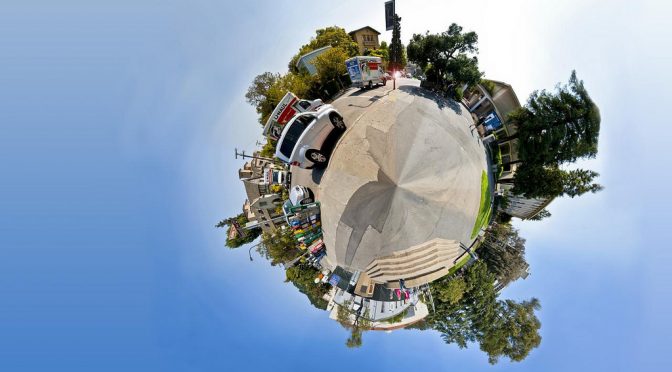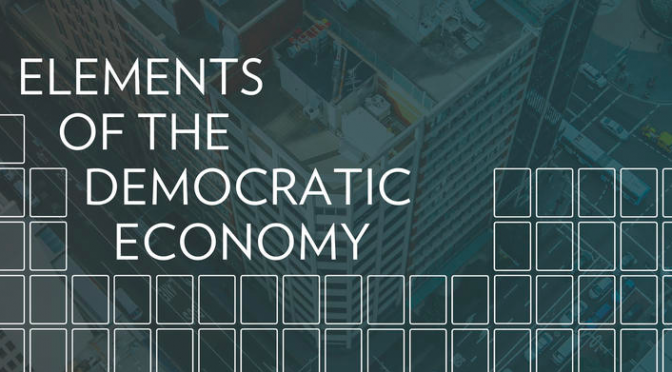The New Labor Forum has a bi-weekly newsletter on current topics in labor, curated by the some of the most insightful scholars and activists in the labor world today. Check out some highlights from the latest edition below.
The gaping income and wealth inequality, increasing constrictions on democratic rights, and perilous ecological unsustainability that are the features of the contemporary U.S. political economy have given rise to a host of theoretical and practical efforts to imagine another way. These efforts were the focus of an important national conference “Our Economy! Economic Democracy and System Change” held on April 12th at the CUNY School of Labor and Urban Studies, publisher of New Labor Forum. How can we transform our economy into a more just and ecologically sustainable system? What current practices and historic precedents offer lessons toward the creation of a participatory democracy? This newsletter provides a video clip of a rousing speech by conference keynote, J. Phillip Thompson, NYC Deputy Mayor for Strategic Policy Initiatives. In his remarks, Thompson discusses the legacy of organized labor’s tragic failure to build a multi-racial working-class movement for economic democracy. On this theme, we also include a New Labor Forumarticle by Brandon Terry and Jason Lee, who examine current tendencies among the leadership of black social justice organizations and unions that hinder the possibility for this sort of broader movement. We end with a poem by Pulitzer Prize winning poet, Gregory Pardlo, who writes with poignant grace of his childhood as the son of an African American union leader in the cataclysmic PATCO strike of 1981.
Table of Contents
- The Origins and Relevance of the Struggle for Economic Democracy in the U.S./ J. Phillip Thompson, CUNY School of Labor and Urban Studies
- Rethinking the Problem of Alliance: Organized Labor and Black Political Life/ Brandon M. Terry and Jason Lee, New Labor Forum
- Winter After the Strike/ Gregory Pardlo, Digest

